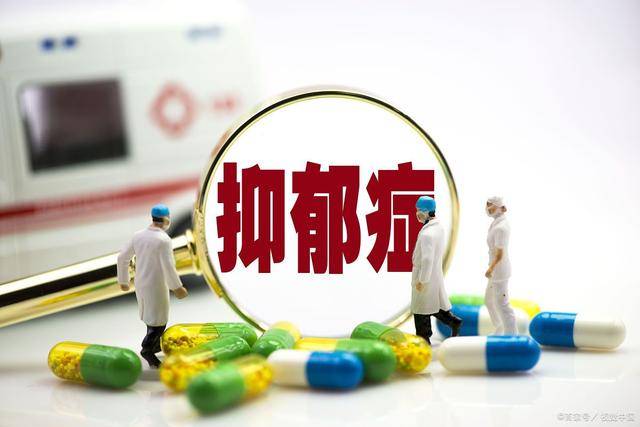【Case Analysis】 Renowned singer CoCo Lee passed away on July 5 after an unsuccessful suicide attempt due to depression. CoCo Lee, also known as 李玟 (Li Wen), is a popular Mandarin female singer and is hailed as the queen of Asian pop music. She was born in Hong Kong in 1975 and later moved to the United States to start her music career.
Her songs often top various music charts and have won multiple music awards. Apart from her success in the Mandarin music industry, CoCo Lee actively expanded into the international market. She collaborated with many internationally famous artists including Mariah Carey, Whitney Houston, Quincy Jones, and her English songs were loved by international audiences.
Not only did CoCo Lee achieve great success in music, but she also spread positive energy through music and charity work, influencing countless people.
In today’s society, depression has become a serious public health issue, affecting more and more people. While the causes of depression are varied, the role of medication cannot be ignored. Some medications may trigger or worsen symptoms of depression, hence understanding the risks of these medications is crucial.
1. Link between Medication and Depression
1. Reasons for Rapid Onset of Depression
The onset of depression usually does not happen overnight but is the result of various factors working together. While factors like mental, social, and biological elements play a role, the impact of medication is significant. Some medications may disrupt the balance of neurotransmitters, leading to the onset or aggravation of depression symptoms.
2. Which Medications Can Cause Depression?
Here are some common types of medications that may be associated with the onset of depression:
Antibiotics: Certain antibiotics such as Levofloxacin, Fluoroquinolones are believed to have a connection with depression.
Hormones: Long-term use of hormone medications, like corticosteroids, may result in mood swings and symptoms of depression.
Cardiovascular Medications: Some blood pressure and heart disease medications may affect the balance of neurotransmitters, thus causing symptoms of depression.
Neurological Medications: Some central nervous system medications, like benzodiazepines, have been found to be related to the onset of depression.
2. Role of Medication in Depression Treatment
1. Role of Medication in Depression Treatment
Medication plays a crucial role in the treatment of depression. The use of antidepressant medication can help restore the balance of neurotransmitters, alleviate depression symptoms, and improve the quality of life for patients. Medication treatment is often combined with psychotherapy to form a comprehensive treatment plan.
2. Considerations for Medication Treatment
While medication plays a positive role in the treatment of depression, some considerations include:
Individual Differences: People react differently to medications, hence selecting the appropriate medication and dosage is crucial.
Side Effects: Antidepressant medication may cause side effects such as drowsiness, sexual dysfunction, weight gain, etc. Patients and doctors should work closely together to assess the risks and benefits of medication treatment.
Continuous Monitoring: Patients during medication treatment need regular follow-ups and monitoring to ensure the effectiveness and safety of the medication.
3. Comprehensive Treatment of Depression
1. Role of Psychotherapy
While medication treatment is important, the treatment of depression does not solely rely on medication. Psychotherapies like Cognitive Behavioral Therapy (CBT), Psychodynamic Therapy, etc., are widely used in depression treatment. These therapies can help patients explore and resolve inner issues, enhance stress coping abilities, promote self-growth, and psychological well-being.
2. Lifestyle Intervention
Changing lifestyle habits is also a key factor in depression treatment. Balanced diet, regular exercise, good sleep, and sufficient social support all play a positive role in alleviating depression symptoms. Patients should avoid unhealthy habits like excessive alcohol consumption or substance abuse that may worsen depression symptoms.
The treatment of depression requires a comprehensive approach; medication treatment plays a crucial role. Medication treatment is not the sole solution, psychotherapy, and lifestyle interventions are equally important. When using medication treatment, doctors and patients should closely collaborate to assess risks and benefits, and conduct regular monitoring and follow-ups. The goal of comprehensive treatment is to help patients alleviate depression symptoms, improve psychological well-being, and enhance their quality of life.
While medication plays a significant role in the treatment of depression, patients should also understand that just taking medication is not enough. Medication treatment is only a part of comprehensive treatment; other interventions are equally important. Psychotherapy can assist patients in understanding and coping with inner issues, altering negative thought patterns, and providing practical coping skills. Furthermore, changing unhealthy lifestyle habits can also have a positive impact on depression.
When treating depression, a combined consideration of medication treatment, psychotherapy, and lifestyle interventions is the most effective approach. A personalized treatment plan should be devised based on the specific circumstances of the patient, including selecting appropriate medication, engaging in suitable psychotherapy, and promoting healthy lifestyle practices.
Patients should not stop or alter medication treatment on their own and should do so under the guidance of a doctor. Doctors will adjust medication dosage or switch to other medications based on the patient’s symptoms and response to ensure optimum treatment outcomes.
Understanding which medications may cause depression is crucial, but we must also recognize that the treatment of depression is a comprehensive process. While medication treatment plays a significant role, the combination of psychotherapy and lifestyle interventions is crucial for achieving long-term recovery. Only through comprehensive treatment can patients rebuild a positive mental state, improve their quality of life, and attain lasting health and happiness.
#RestInPeaceSister#


